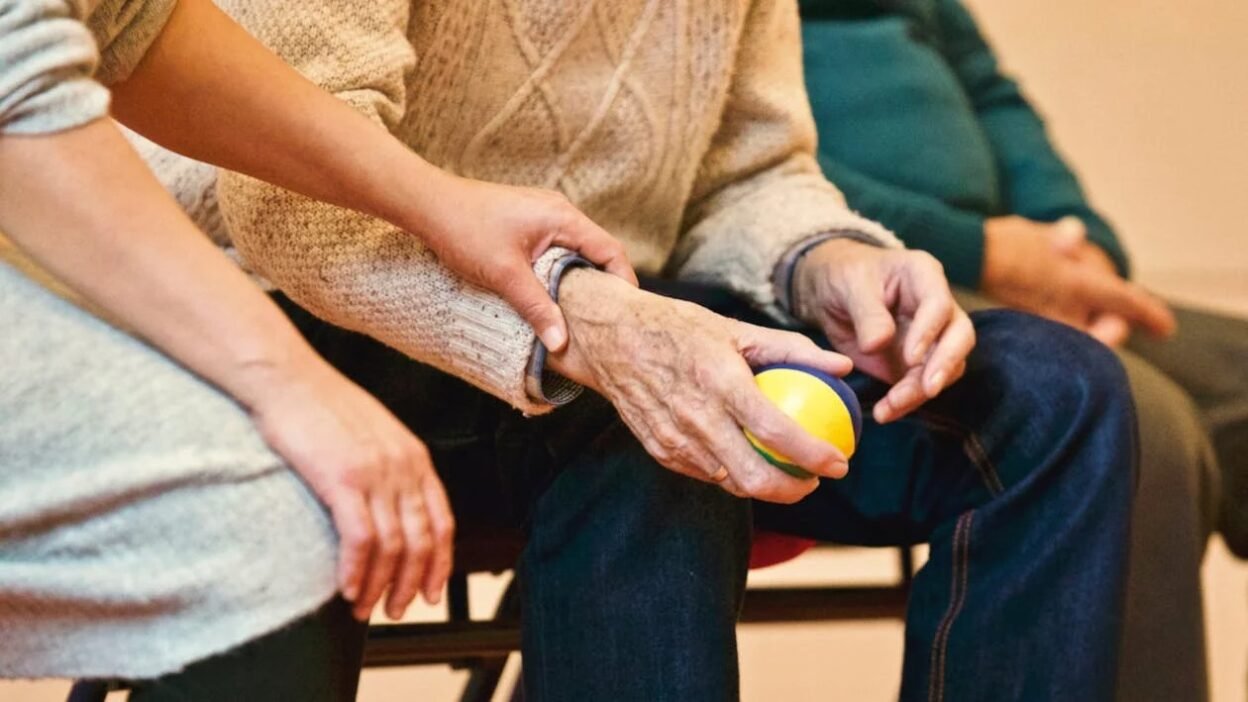If you or a loved one is starting to explore care options, you might be feeling a mix of things like concern, confusion, or even guilt. That’s completely normal. You want the best care possible, but also want to make sure your loved one stays comfortable, safe, and as independent as possible. That’s where home care services in Sydney can make a real difference.
Home care assistance means having a trained nurse or carer come to your home to help with everyday tasks, personal care, medication, or even more complex health needs.
It’s a solution that many Sydney families are choosing because it allows people to stay in familiar surroundings and live life on their own terms.
Today, we’ll show you how to make the most of the home care support available to you. These tips will help you feel more in control, confident, and informed about your choices.
What Can Home Care Services Offer?
When people think of home care, they often imagine someone helping with basic tasks. But it’s so much more than that. Home care services in Sydney are designed to support individuals in ways that help them live safely and comfortably at home for as long as possible.
Here’s a look at the kinds of support you can expect:
- Personal care: This includes help with everyday tasks like dressing, grooming, bathing, and using the bathroom.
- Nursing and medication support: Trained nurses can visit to check blood pressure, manage wounds, give injections, or help with medication routines.
- Meal preparation and housekeeping: From cooking meals to light cleaning and laundry, these services make daily living easier and safer, especially for older adults who struggle with mobility or energy levels.
- Allied health support: This covers things like physiotherapy to improve strength and movement, or occupational therapy to help with home safety and using equipment.
- Social support and companionship: Loneliness can be just as harmful as illness. Many carers also provide friendly company, like chatting over a cup of tea, helping with errands, or going for a walk.
One of the best things about home care services in Sydney is that they can be completely customised. No two people are the same, so care plans are made to suit the person’s exact needs, preferences, and goals.
Start with a Clear and Honest Assessment of Needs
Before jumping into a care plan, it’s important to step back and ask: What kind of help is really needed, now and in the near future? That’s where a proper assessment comes in.
In Australia, this often starts with an ACAT (Aged Care Assessment Team) assessment, especially if government funding is involved. But families can also speak directly with a trusted home care provider in Sydney for a private assessment, which can be quicker and more flexible.
This step helps everyone understand what kind of support would make a real difference.
It’s also important to involve the person who will be receiving the care. Their opinions, concerns, and comfort matter most. Sitting down together to talk about daily routines, health conditions, personal goals, and even small preferences (like food choices or daily habits) can make care feel less clinical and more personal.
Here are a few things to keep in mind when planning care:
- Health history and current medications: Make a simple list that can be shared with care providers to avoid confusion and ensure safety.
- Lifestyle and routines: What’s their usual day like? Do they like reading, gardening, or visiting friends? Good care supports both body and mind.
- Emotional well-being: Is your loved one feeling anxious, lonely, or isolated? These feelings can affect health too, and should be part of the care conversation.
By starting with an honest, full picture of the person’s needs, you set the stage for care that truly makes a difference.
Build a Consistent and Trusting Relationship with Your Care Team
When it comes to getting the most from home care services in Sydney, one of the most important factors is trust. Having the same carers visit regularly makes a big difference.
Familiarity builds comfort, and over time, carers really get to know the person’s routines, needs, and preferences. This makes the care more personal and effective.
For families, having a trusted care team also brings peace of mind. But good relationships are built on honest and open communication. That means talking regularly with your care provider, sharing updates, and speaking up if something isn’t quite right.
In a city as diverse as Sydney, cultural understanding can also be very important. Home care services in Sydney often offer multi-lingual and culturally aligned staff, which can help clients feel more at ease. If this matters to your family, don’t be afraid to request a match that suits your background or language.
Set Realistic Goals and Review Them Regularly
Home care is also about helping people live well and feel fulfilled. That’s why it’s helpful to set clear goals at the start of a care plan. These can be small or big, short-term or long-term. For example:
- Regaining strength to walk independently after surgery.
- Making it to weekly social events or community groups.
- Reducing stress by having help with housework and errands.
These goals give direction and purpose to the care being provided, and they help everyone stay on the same page.
Of course, life changes. Health conditions evolve. That’s why it’s important to review these goals regularly with your care coordinator or provider. Maybe something that mattered six months ago isn’t a priority anymore. Or maybe a new challenge has come up. Adjusting the care plan makes sure that it continues to match the person’s real needs, not just what was written down at the beginning.
It’s also a good idea to involve other health professionals, like your GP or any specialists, in these reviews, especially if there are major updates in health or medications. When everyone works together, care becomes more connected and effective.
Encourage Independence Wherever Possible
An important part of home care services in Sydney is that they are designed to support, not replace, a person’s independence. The goal is to help individuals carry out their daily tasks as much as they can on their own. Even small tasks can boost confidence and keep someone feeling in control of their life.
Using assistive devices and mobility tools is another way to encourage independence. For example, if a person has difficulty moving around, tools such as walking frames, grab bars, or even a lightweight mobility scooter can make a big difference. These aids help maintain independence by allowing individuals to move safely and with less assistance.
Most importantly, home care services in Sydney empower people to make choices about their daily lives. Whether it’s deciding the order in which to complete tasks or choosing what to eat, these small decisions add up to a big impact on quality of life.
Make the Home a Safe and Comfortable Environment
Creating a safe and comfortable home is important for making the most of any care plan. A home that feels secure not only supports physical health but also fosters emotional well-being. Here are some practical tips for improving home safety:
- Install Grab Bars: These can be installed in the bathroom or near stairs to prevent falls.
- Remove Trip Hazards: Check the home for loose rugs, clutter, or uneven surfaces that might cause tripping.
- Optimise Lighting: Good lighting can prevent accidents and make it easier to move around, especially during the evening or night.
For extra support, consider using equipment such as shower chairs in the bathroom, walking frames in hallways, or even hospital beds if needed.
Embrace Technology and Support Services
Simple tools and apps can make daily care smoother, safer, and more connected.
For example, medication reminder apps or automated pill dispensers can help ensure that important medications aren’t missed. Health monitoring devices like glucose meters or blood pressure monitors can be used at home and connected to apps that track changes over time.
There are also emergency alert systems, like wearable buttons or motion sensors, that can quickly notify carers or family members if something goes wrong. These small steps can bring big peace of mind.
Don’t forget about telehealth services, especially helpful if getting to the doctor is tricky. With a phone, tablet, or computer, it’s possible to have virtual appointments with GPs or specialists, ask questions, and even get prescriptions from the comfort of home.
In addition, many Sydney suburbs offer community programs that support older adults and people with health needs. These could include day centres, social groups, transportation services, or respite care options.
If you’re working with a provider of home care services in Sydney, ask them to help you find what’s available in your area, as they often have great local knowledge.
Support Family Carers and Involve Them in the Process
Behind every person receiving care, there’s often a family member quietly juggling it all, like making calls, managing appointments, and trying to stay strong. It’s important to remember that family carers need support too.
When using home care services in Sydney, make sure family members feel involved and valued. They know their loved one best, so their input can be really helpful in creating the right care plan.
Encourage them to ask questions, join in on care reviews, and even attend short training sessions if offered. This builds their confidence and helps everyone feel more prepared.
At the same time, carers also need breaks. Respite care gives them time to rest, recharge, or simply take care of their own needs.
Using a shared care calendar or a simple notebook can also help everyone stay on the same page. Write down appointments, medication changes, or small observations that may be important later. This keeps communication clear and helps avoid stress or confusion.
With the right support, family carers become strong partners in care, and that leads to better outcomes for everyone involved.
Know Your Rights and Speak Up When Needed
When you or a loved one uses home care services in Sydney, you’re entering into a partnership. And like any good partnership, it should be based on respect, trust, and clear communication.
As a client or family member, you have the right to feel safe, respected, and supported. That means receiving high-quality care that values your dignity, preferences, and well-being.
These rights are protected under Australia’s Charter of Aged Care Rights, which outlines what every person should expect when receiving government-funded home care.
It’s also important to know that you can speak up at any time. If something doesn’t feel right, if a carer isn’t the right fit, or if your needs have changed, it’s okay to raise those concerns.
In fact, good care providers want to hear from you. They’ll take your feedback seriously and work with you to make improvements quickly.
Final Words
Choosing home care services in Sydney is about creating a support system that fits your life and your goals.
When care is personalised, respectful, and flexible, it can be truly empowering. It allows people to stay in their homes, remain connected to their communities, and continue living with dignity and purpose.
If you’re just starting the journey, or if you’re already receiving care and wondering how to make it work better, take an active role. Ask questions. Share feedback. Talk openly with your provider. The more involved you are, the more value you’ll get from your care.


